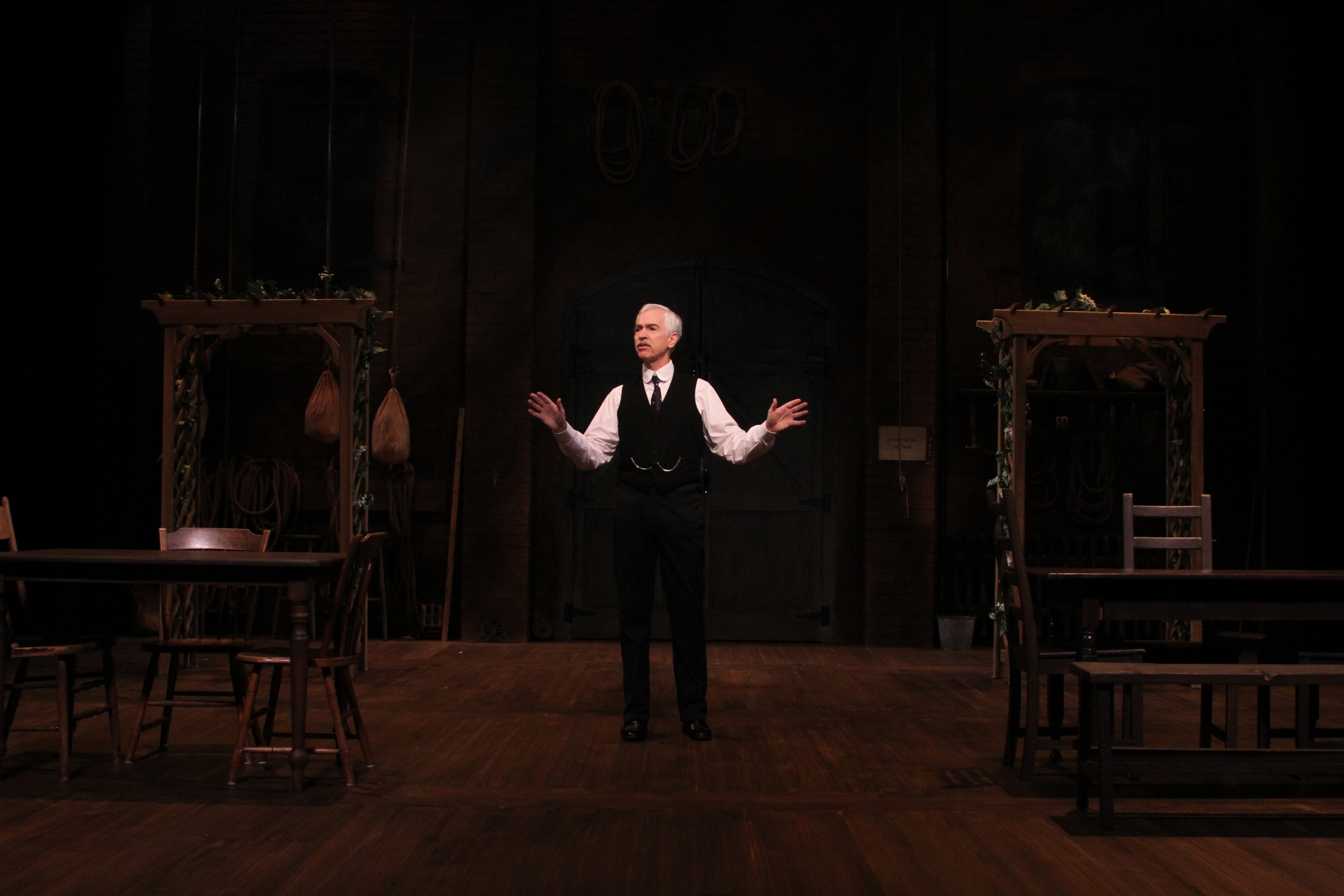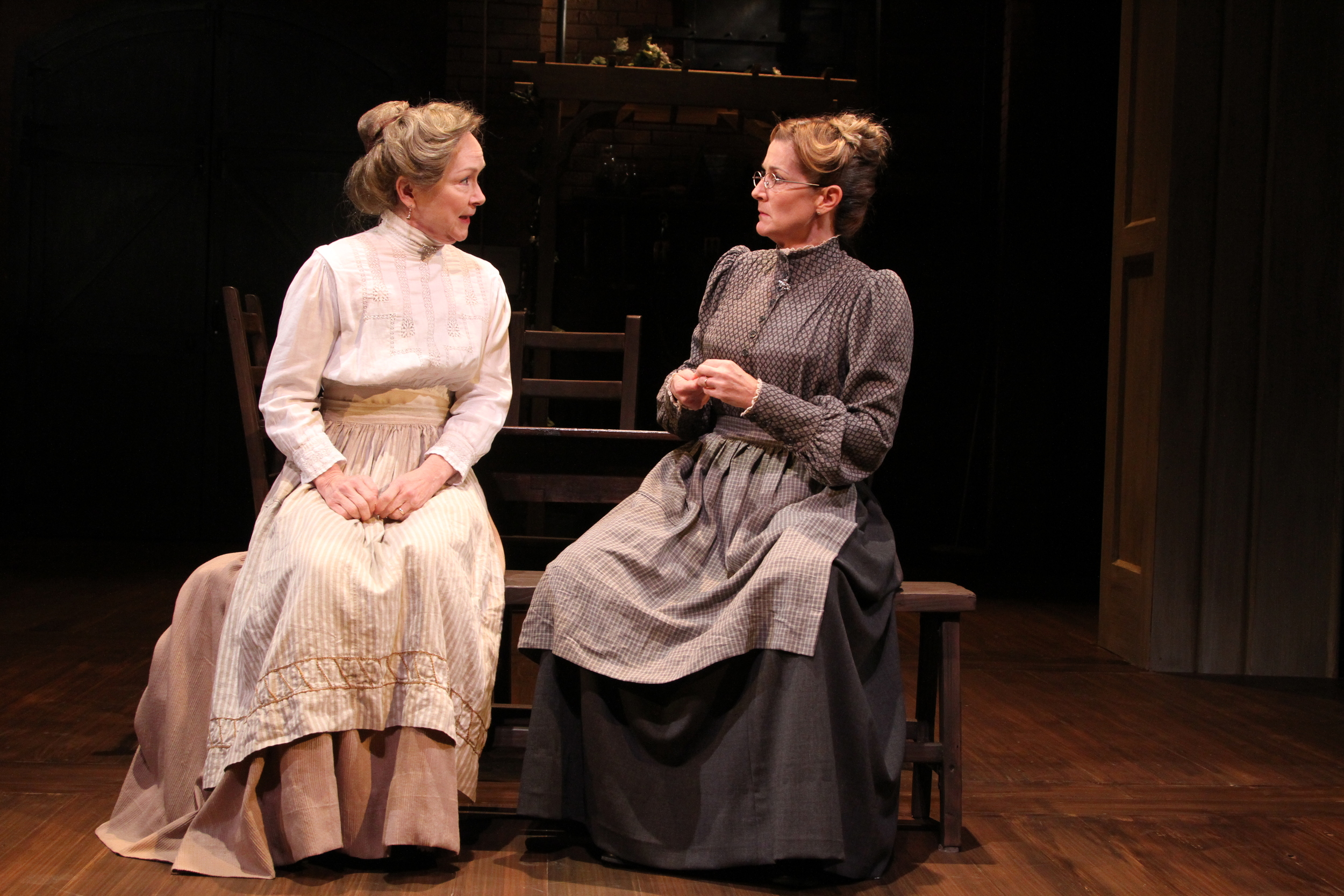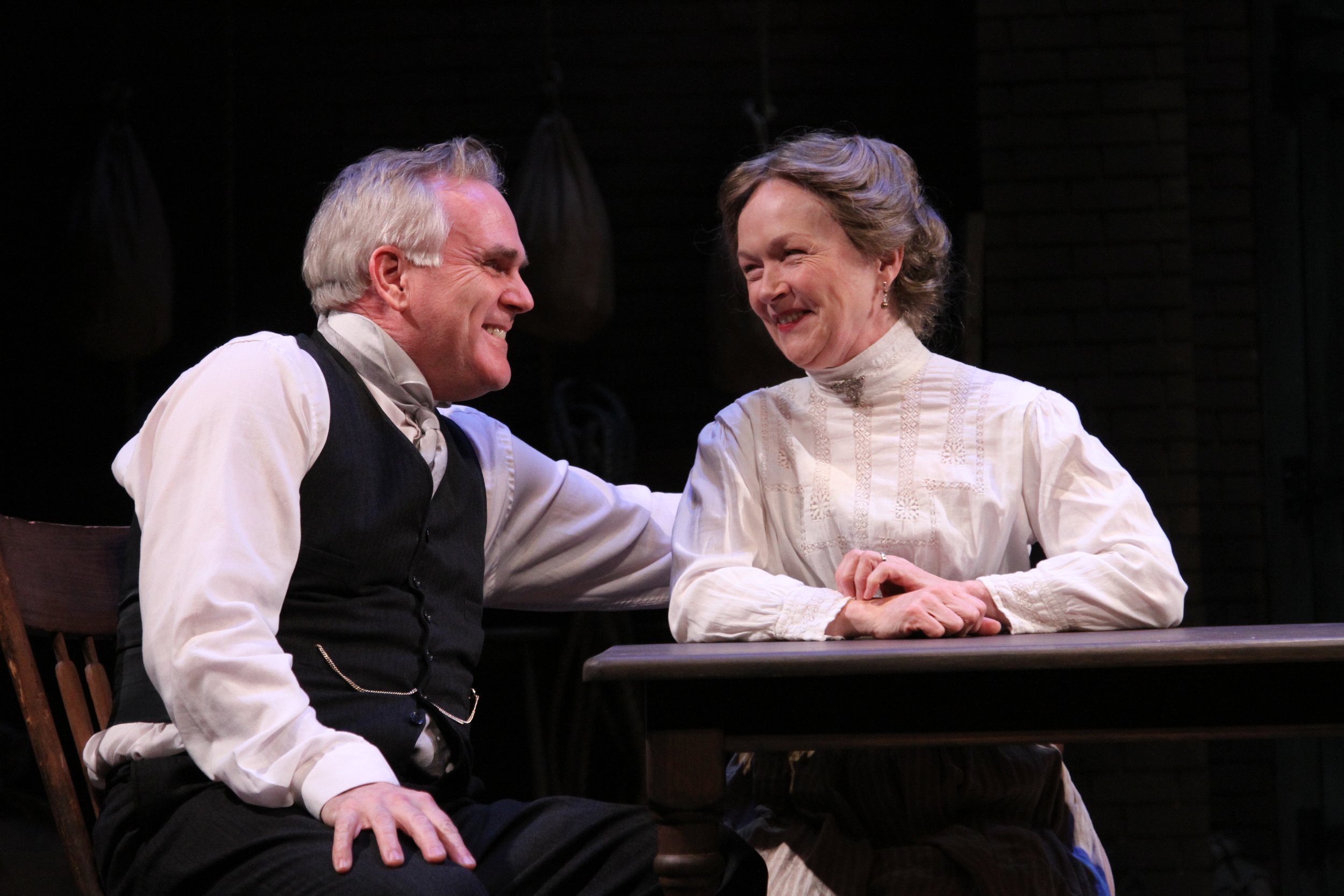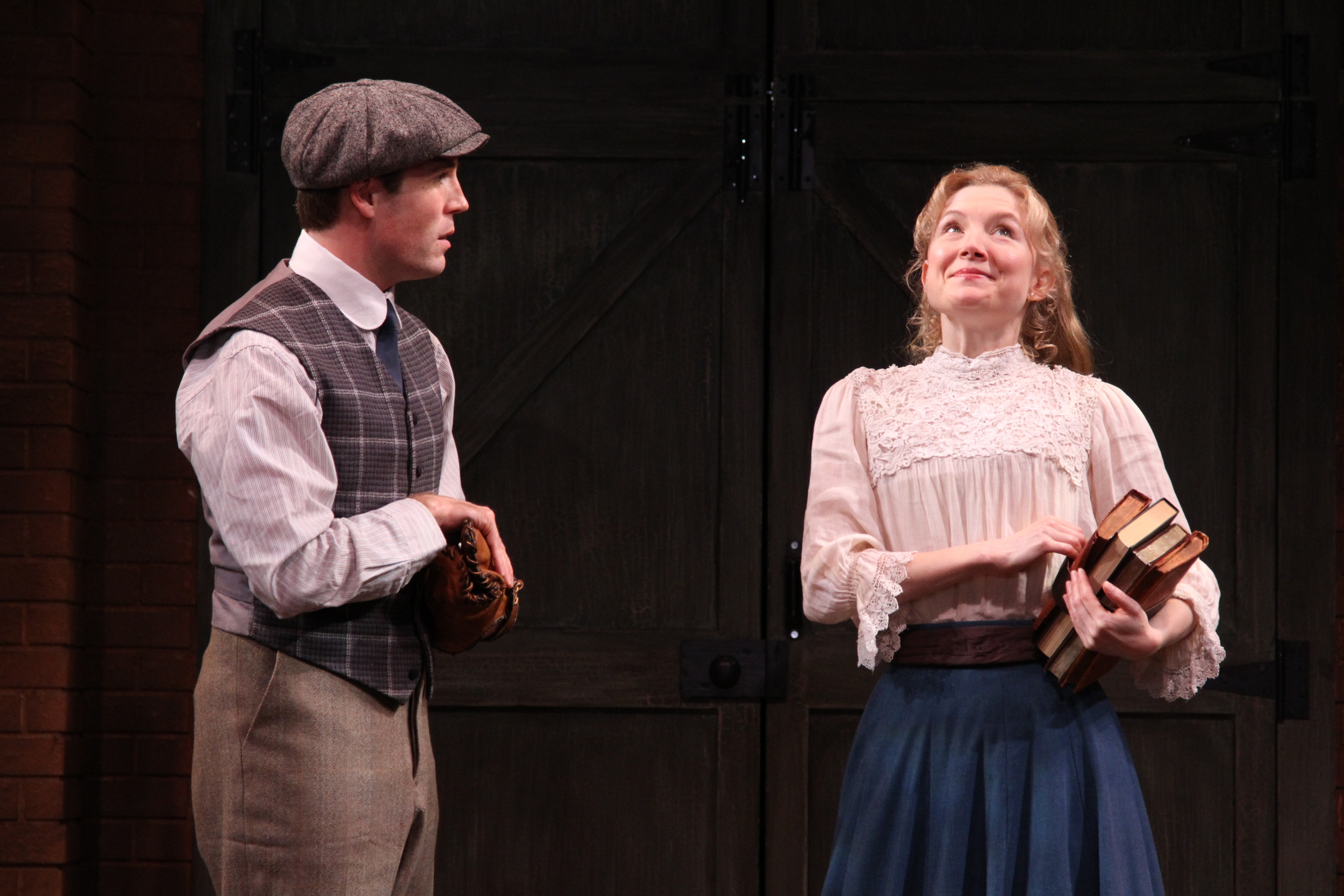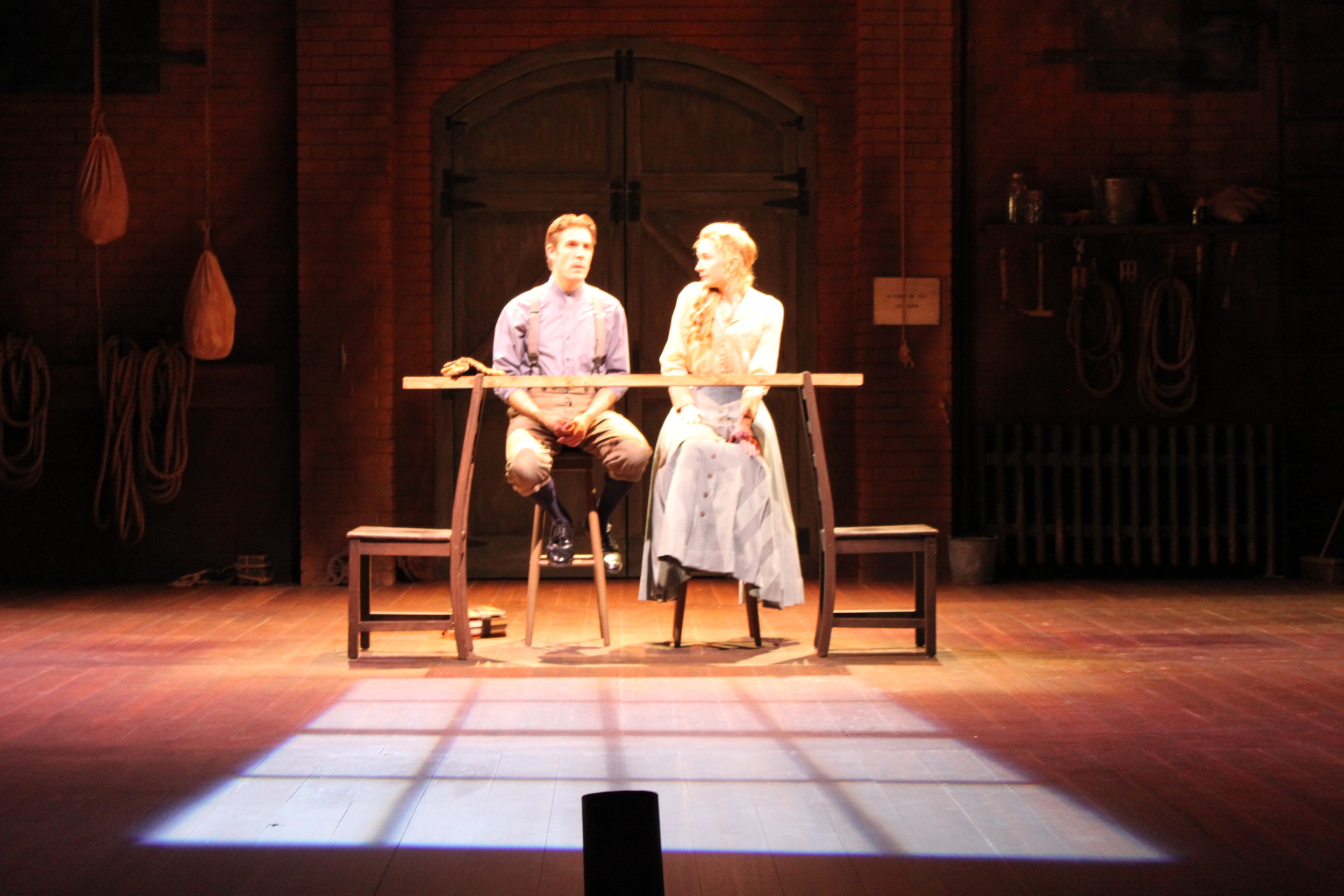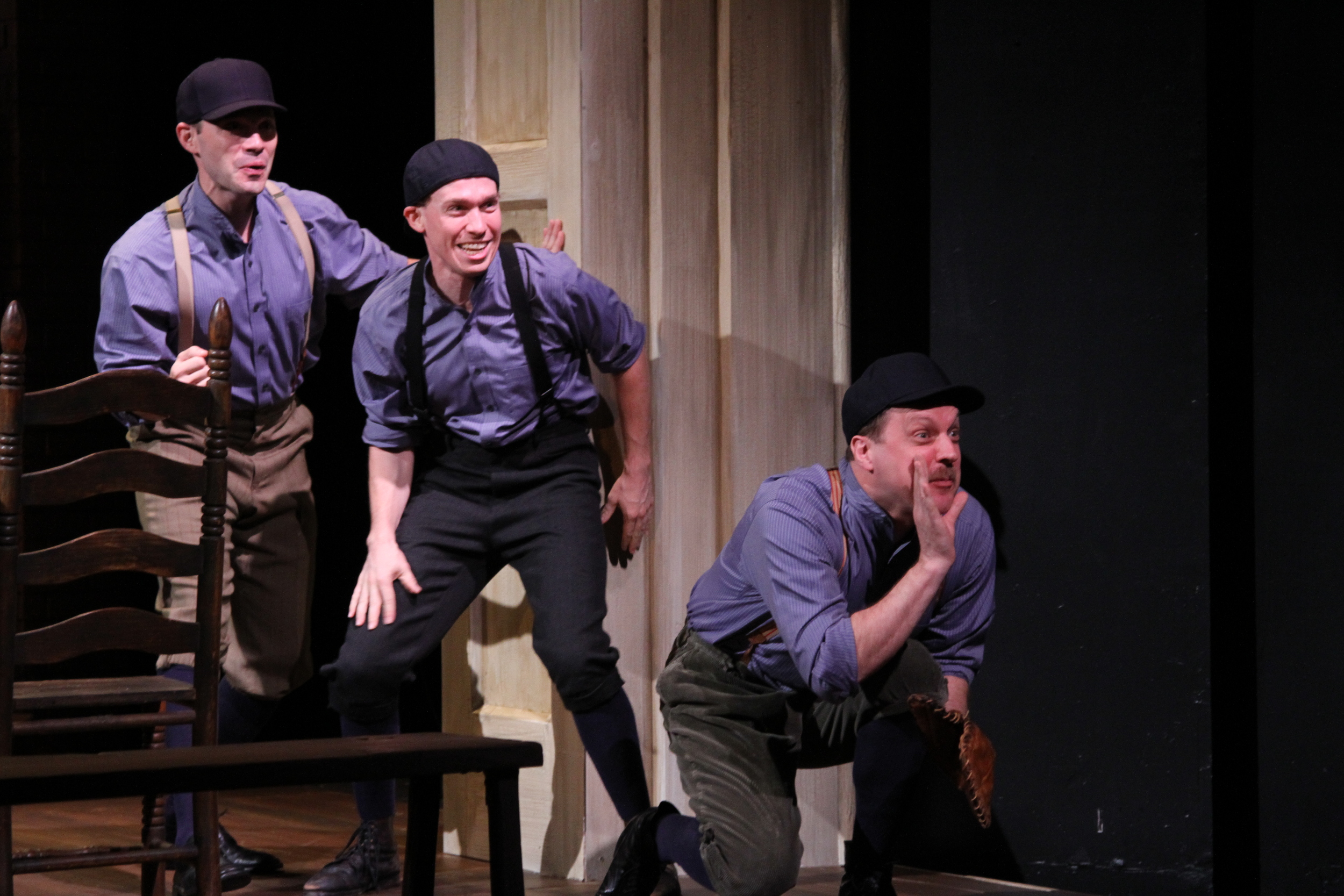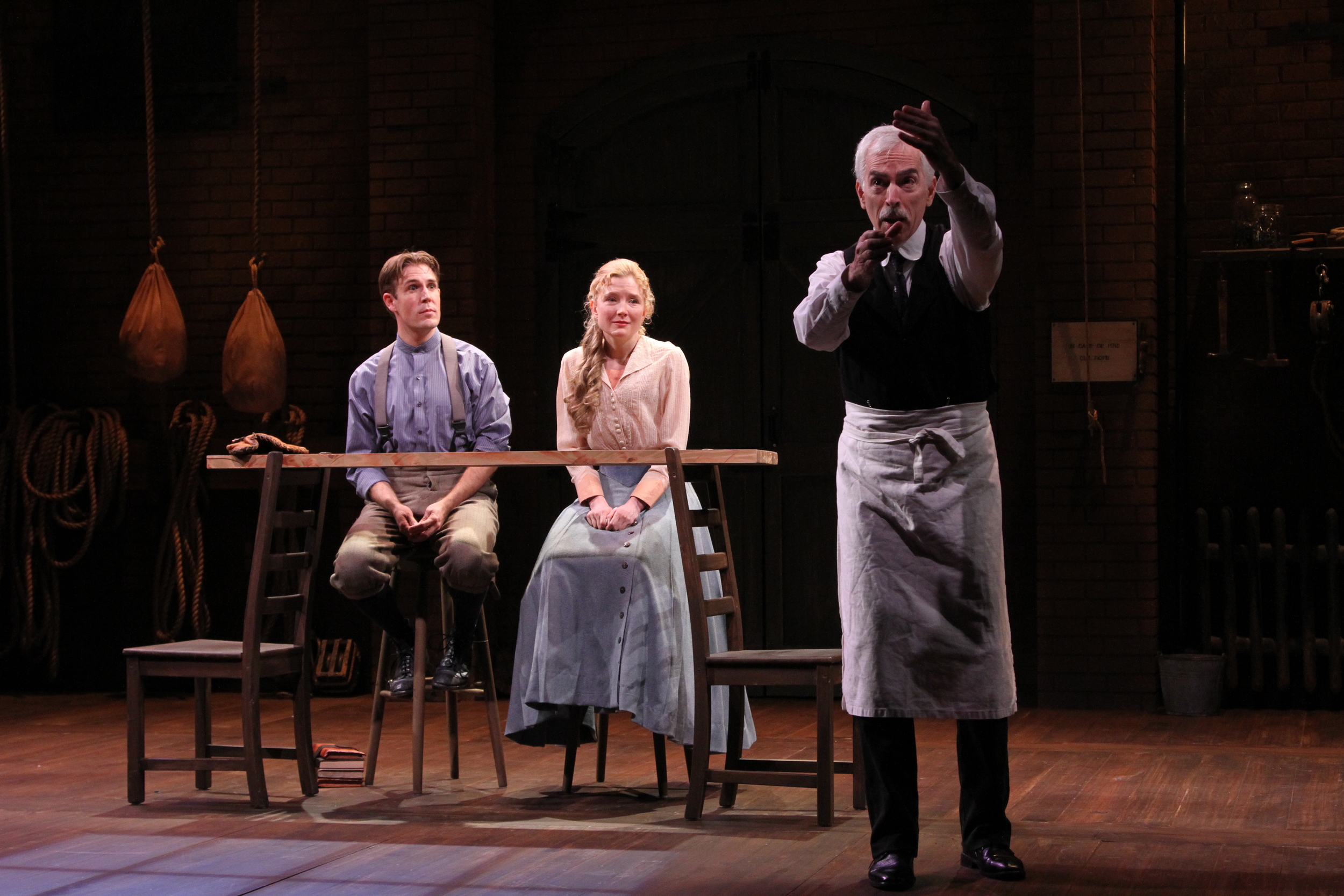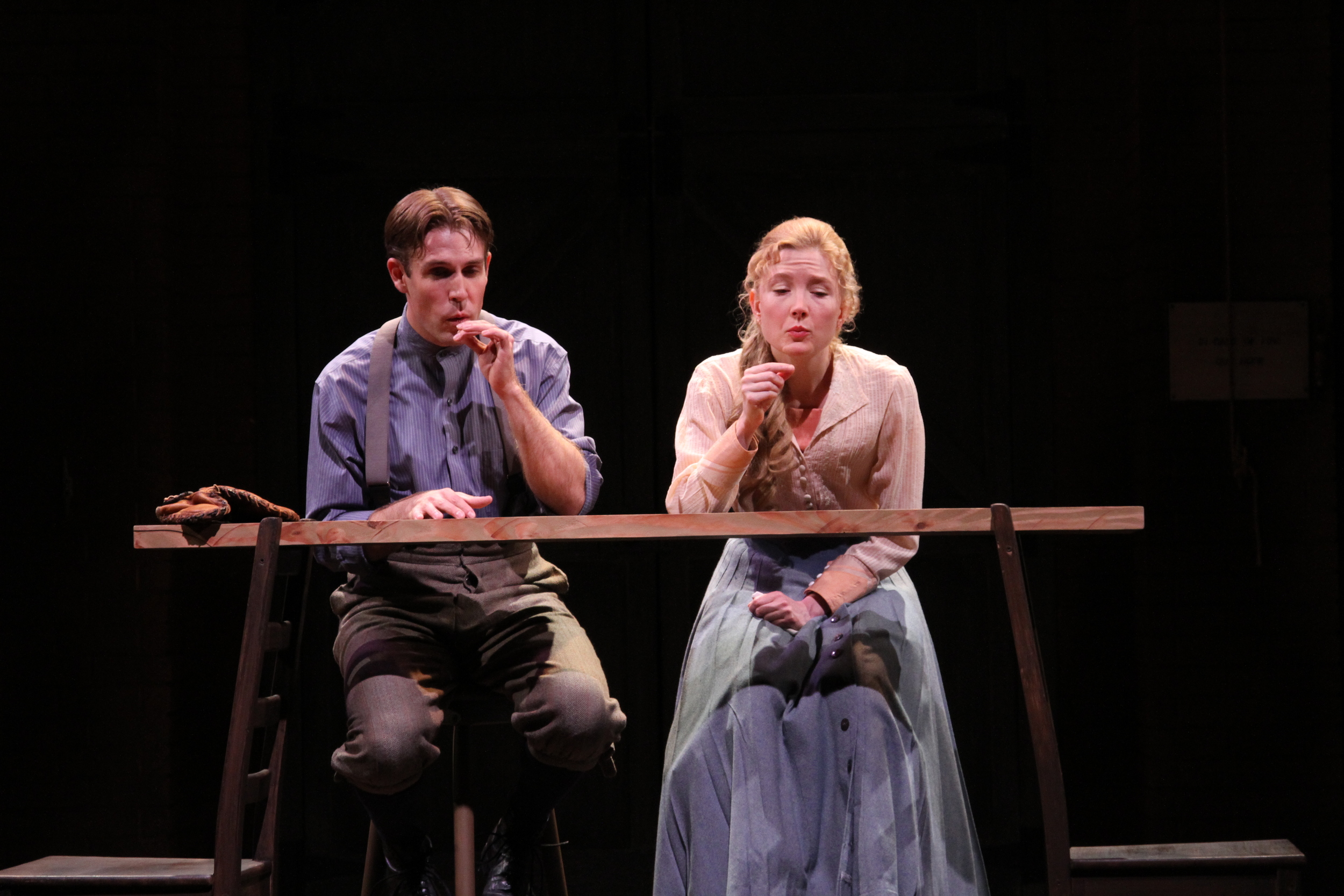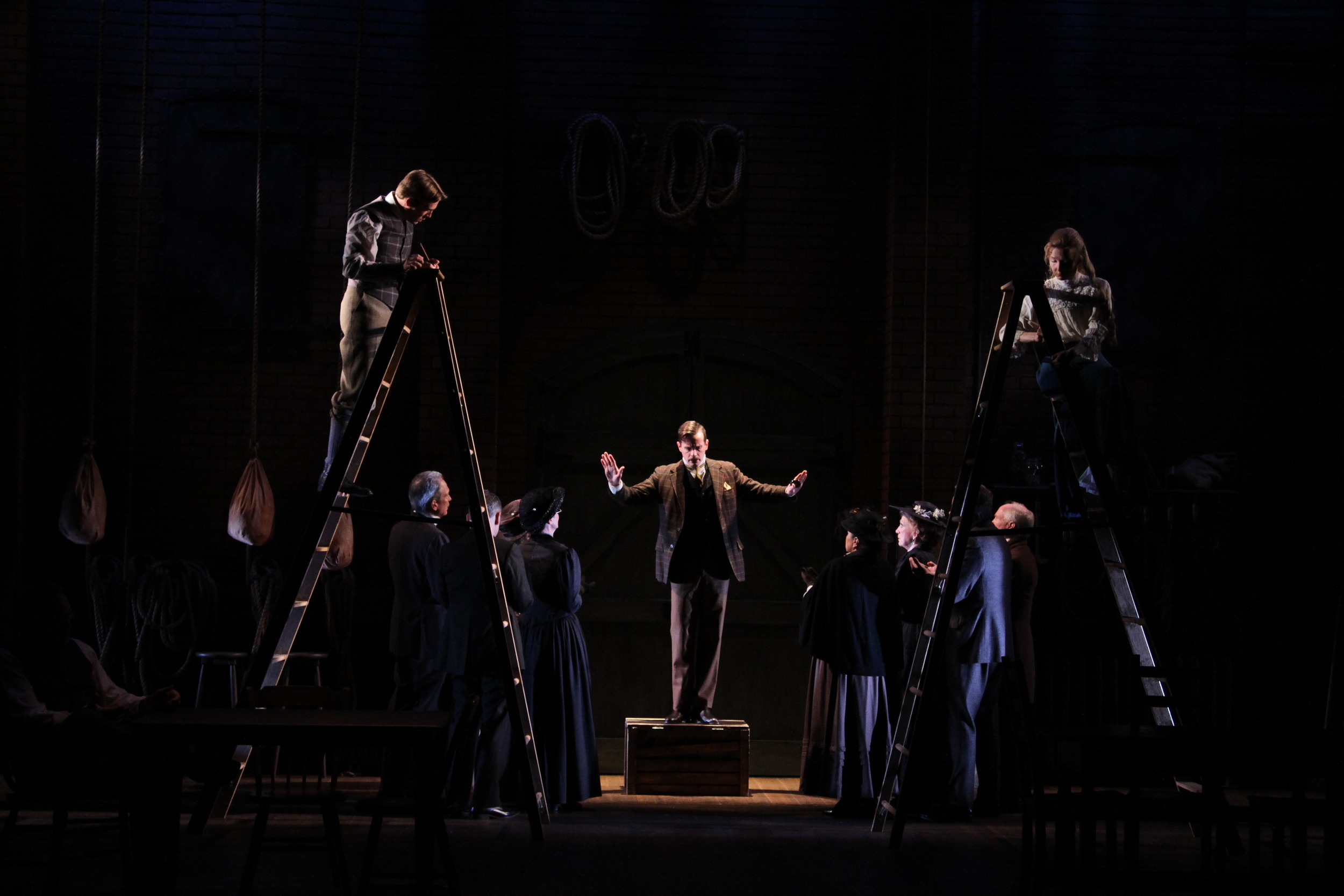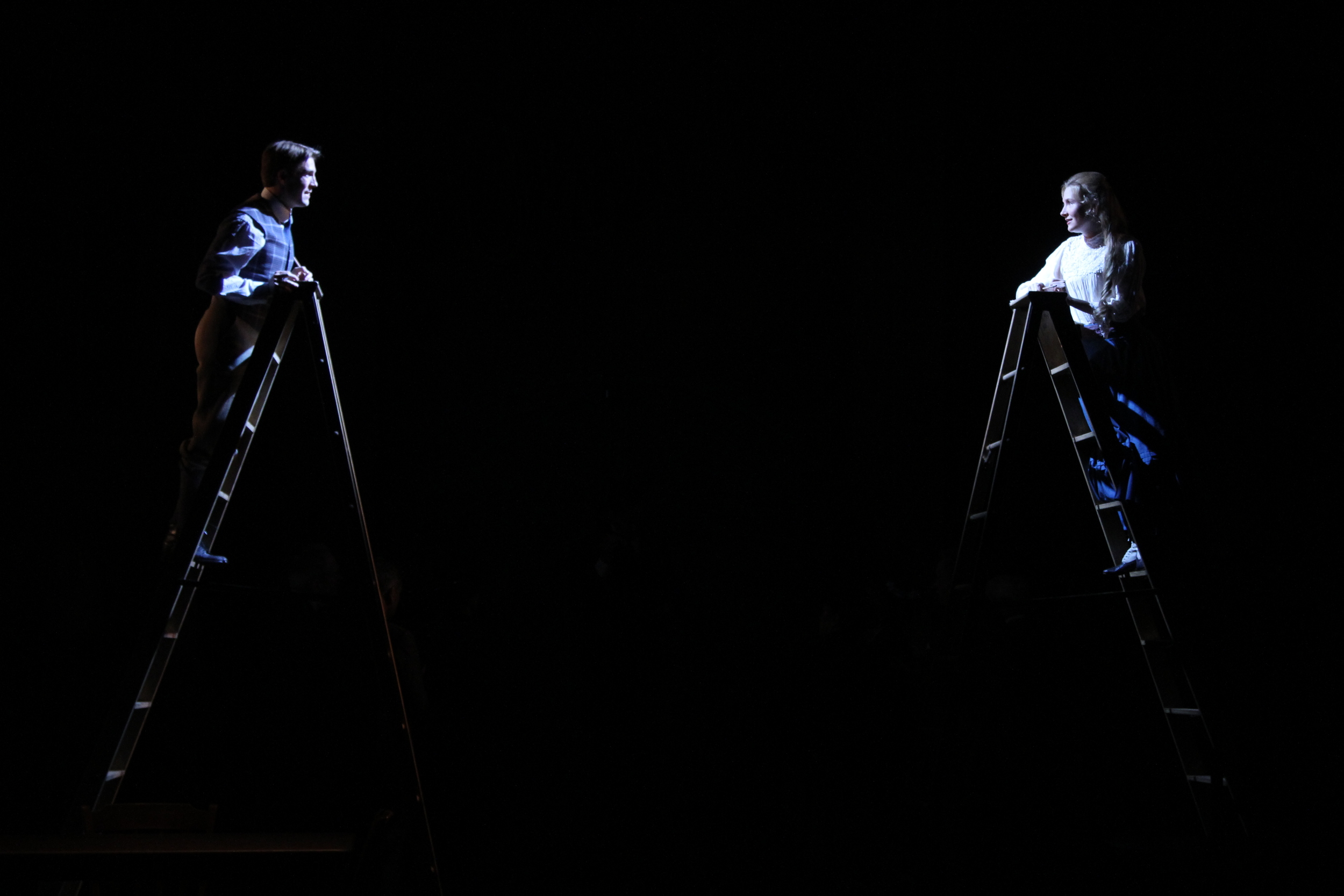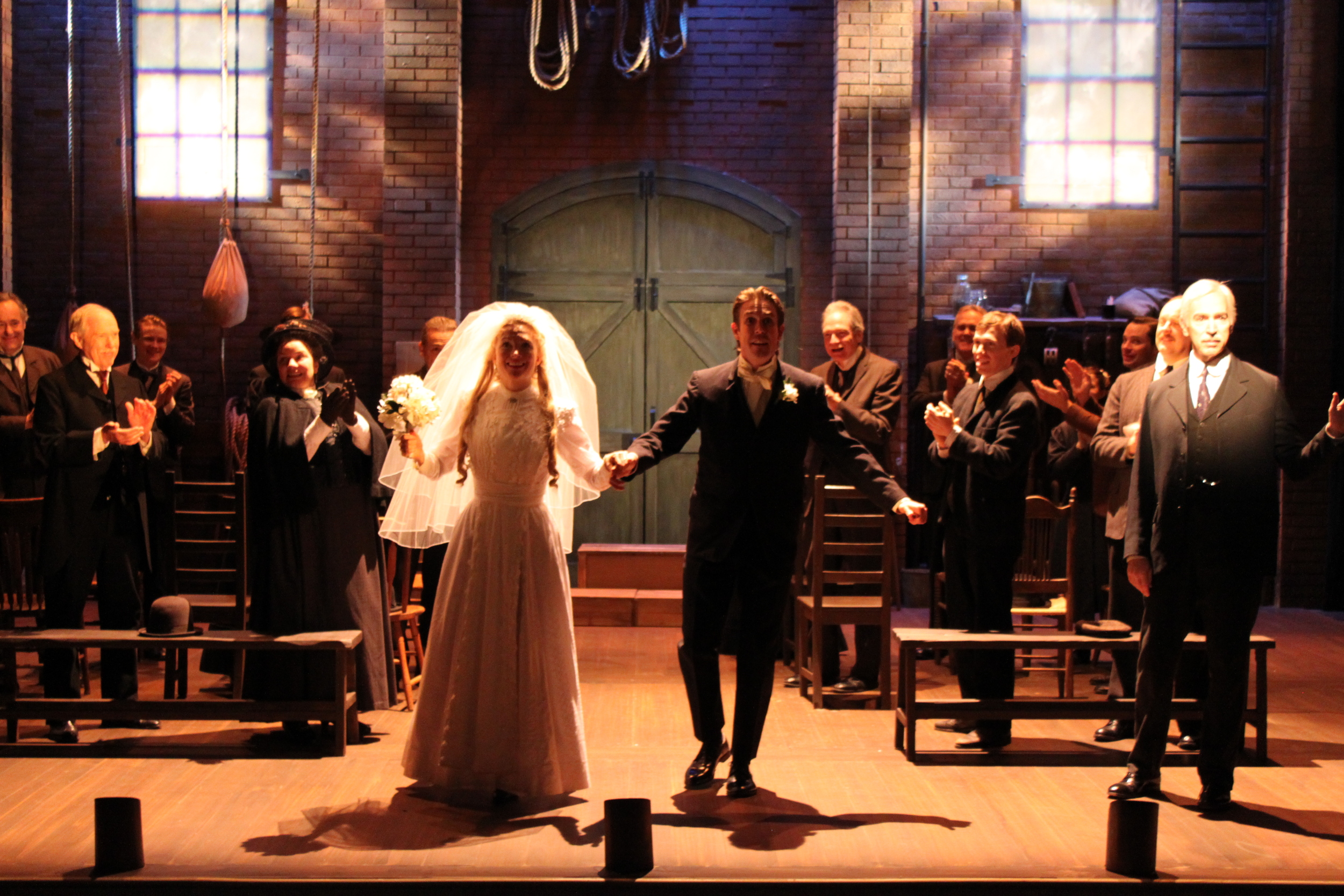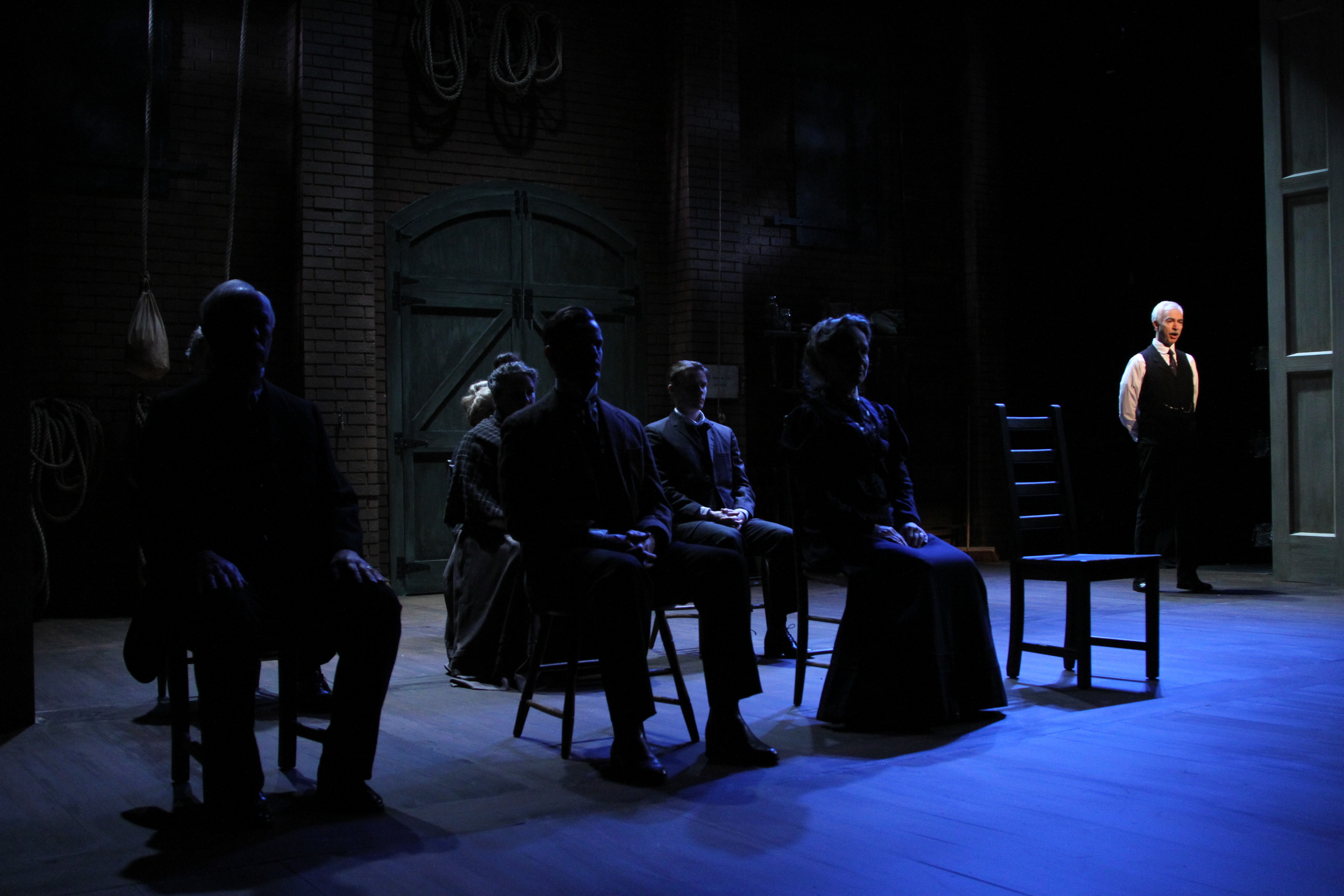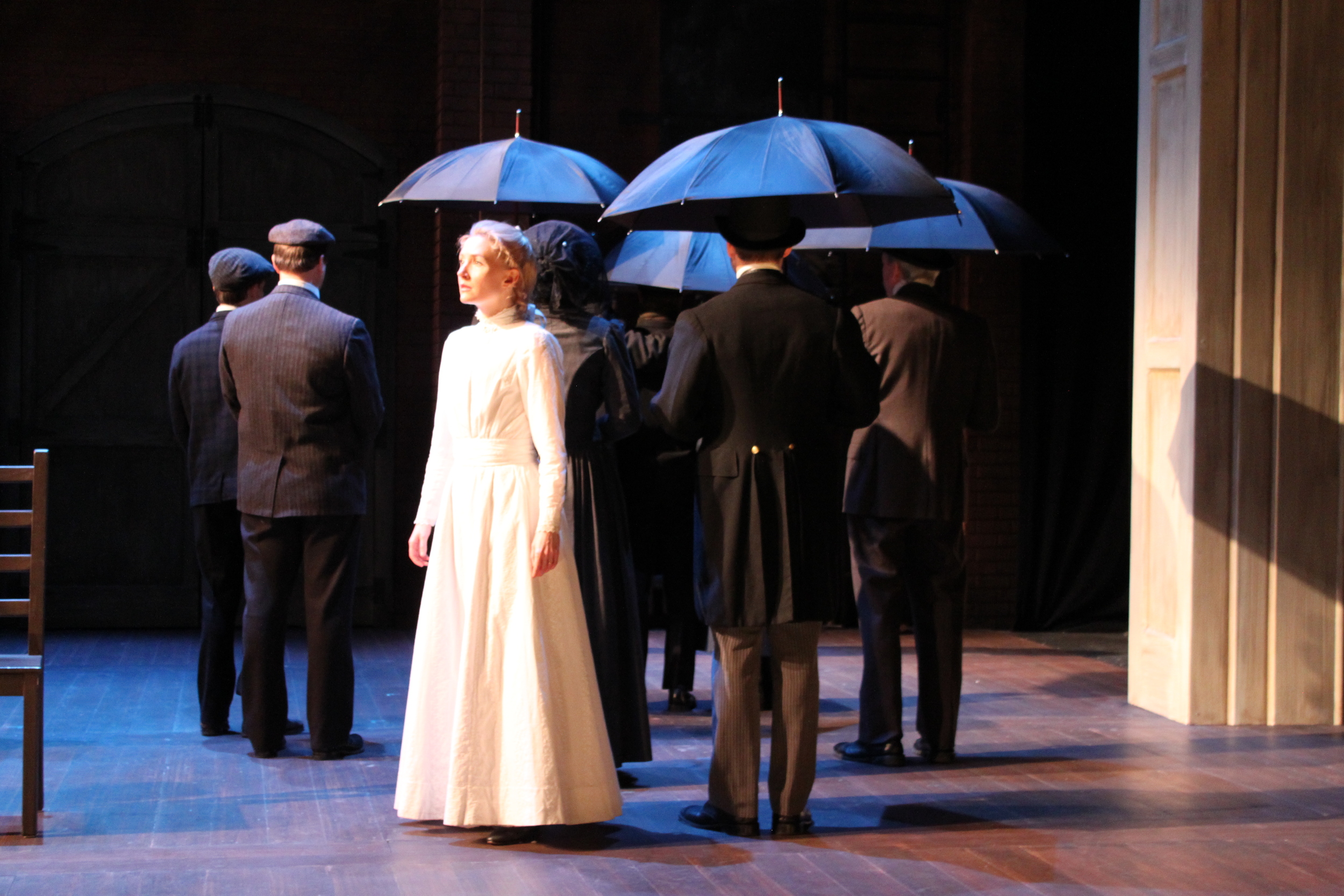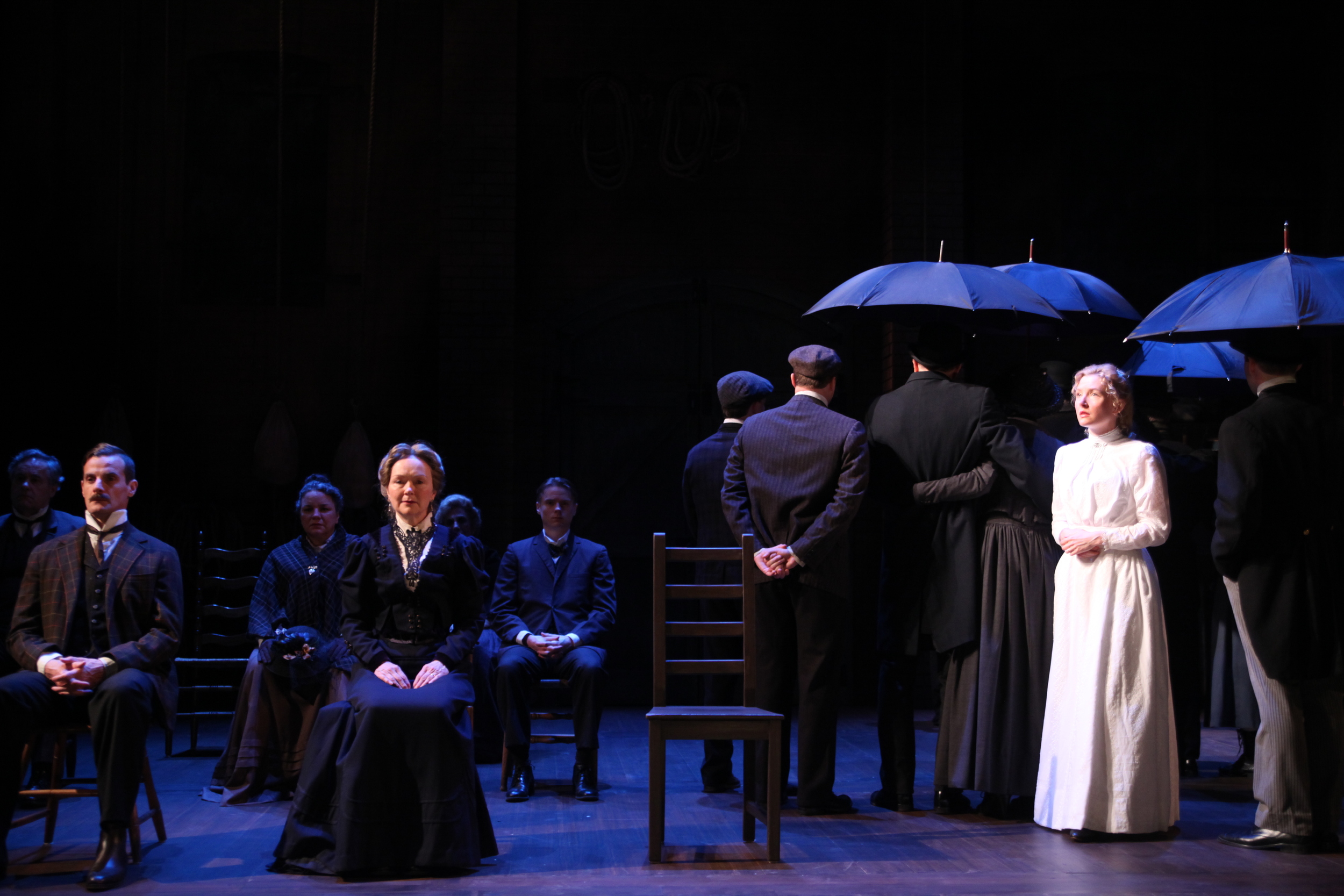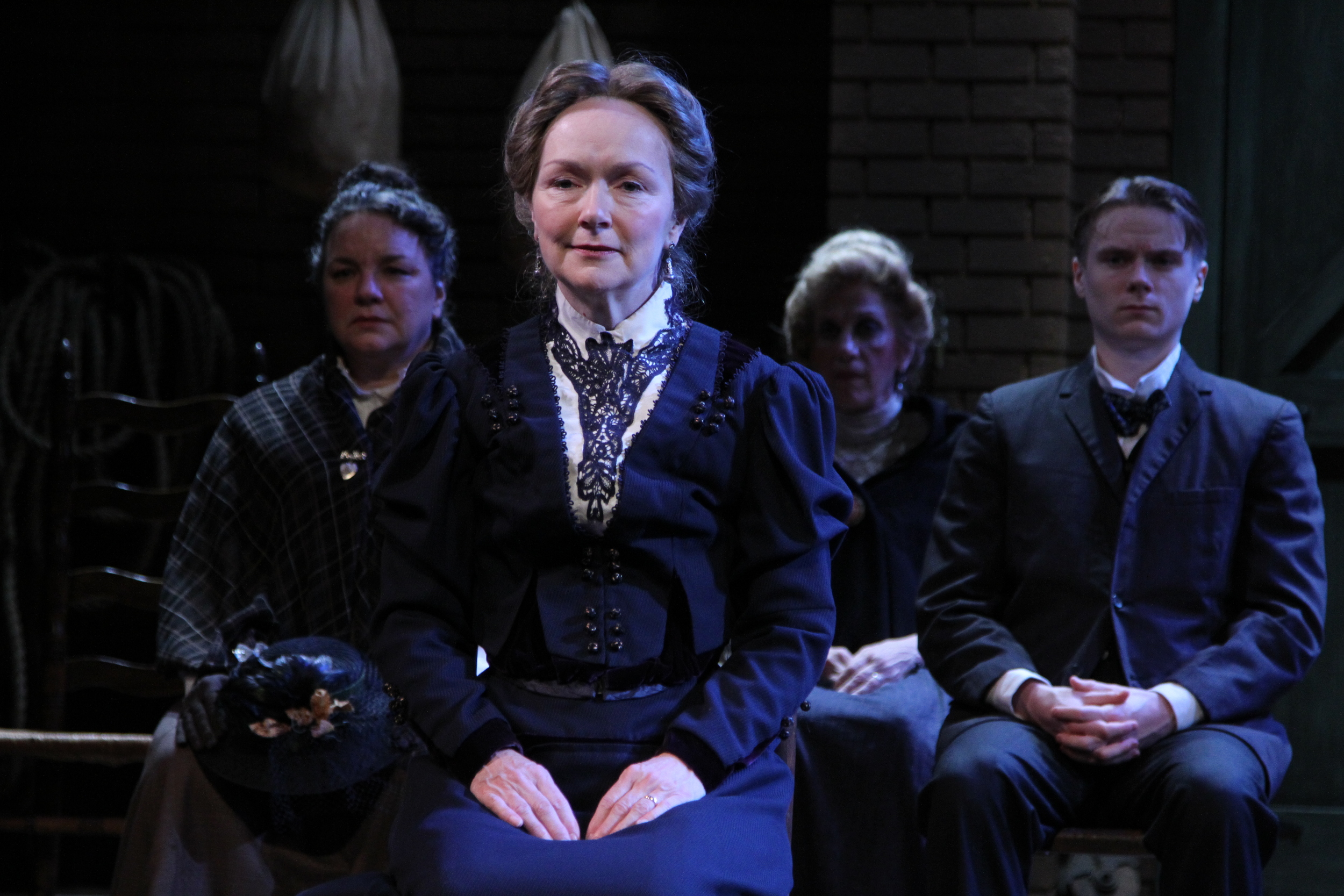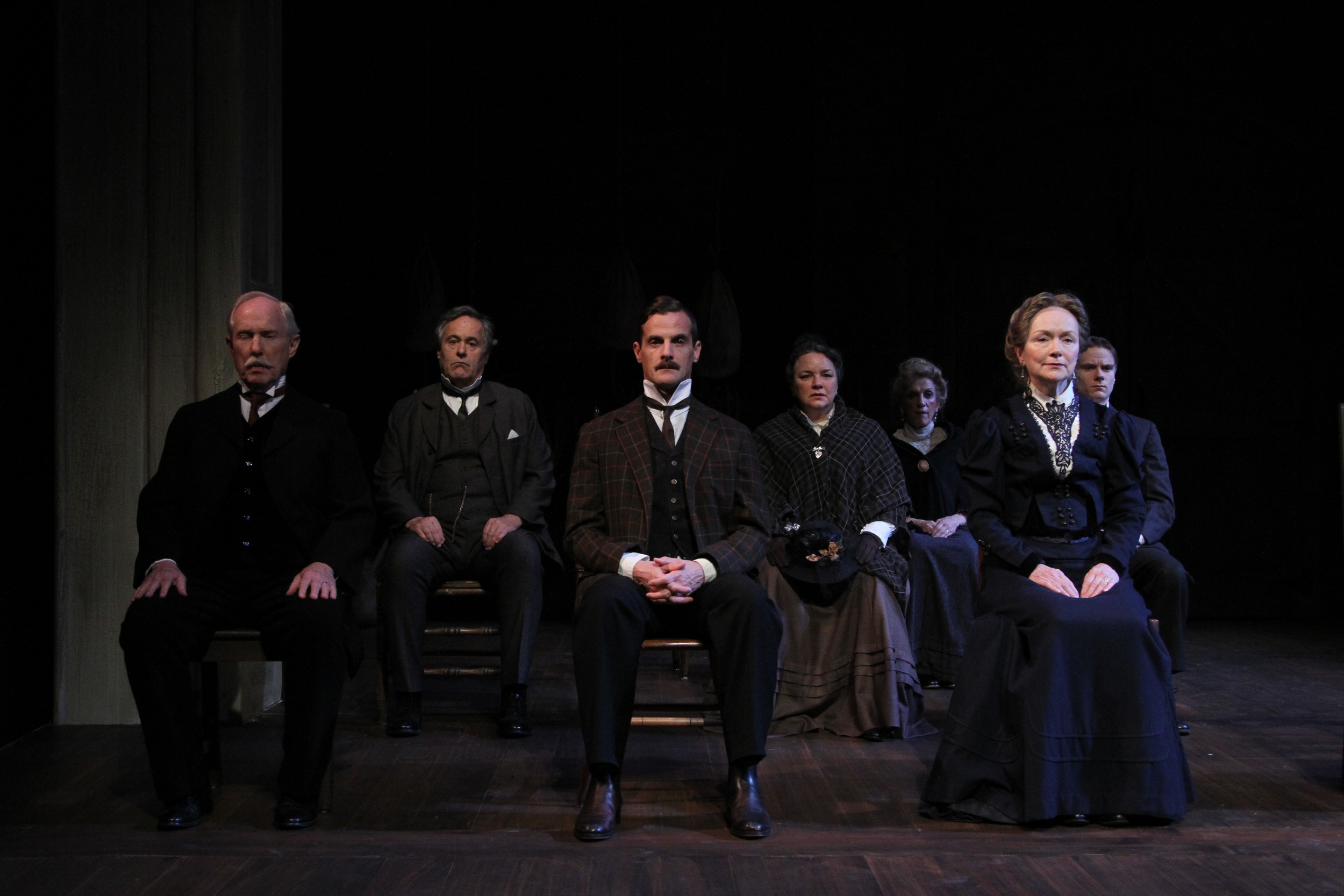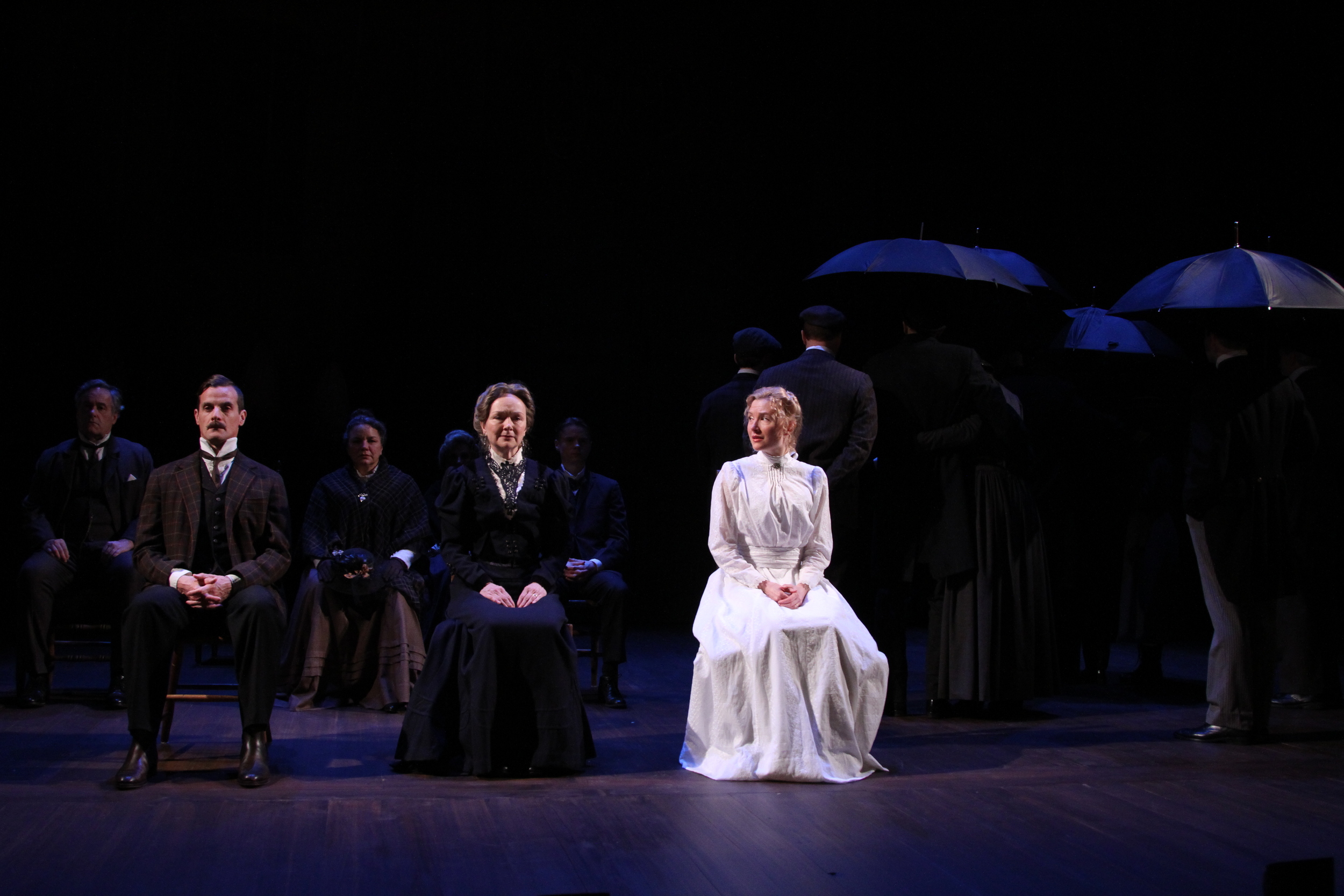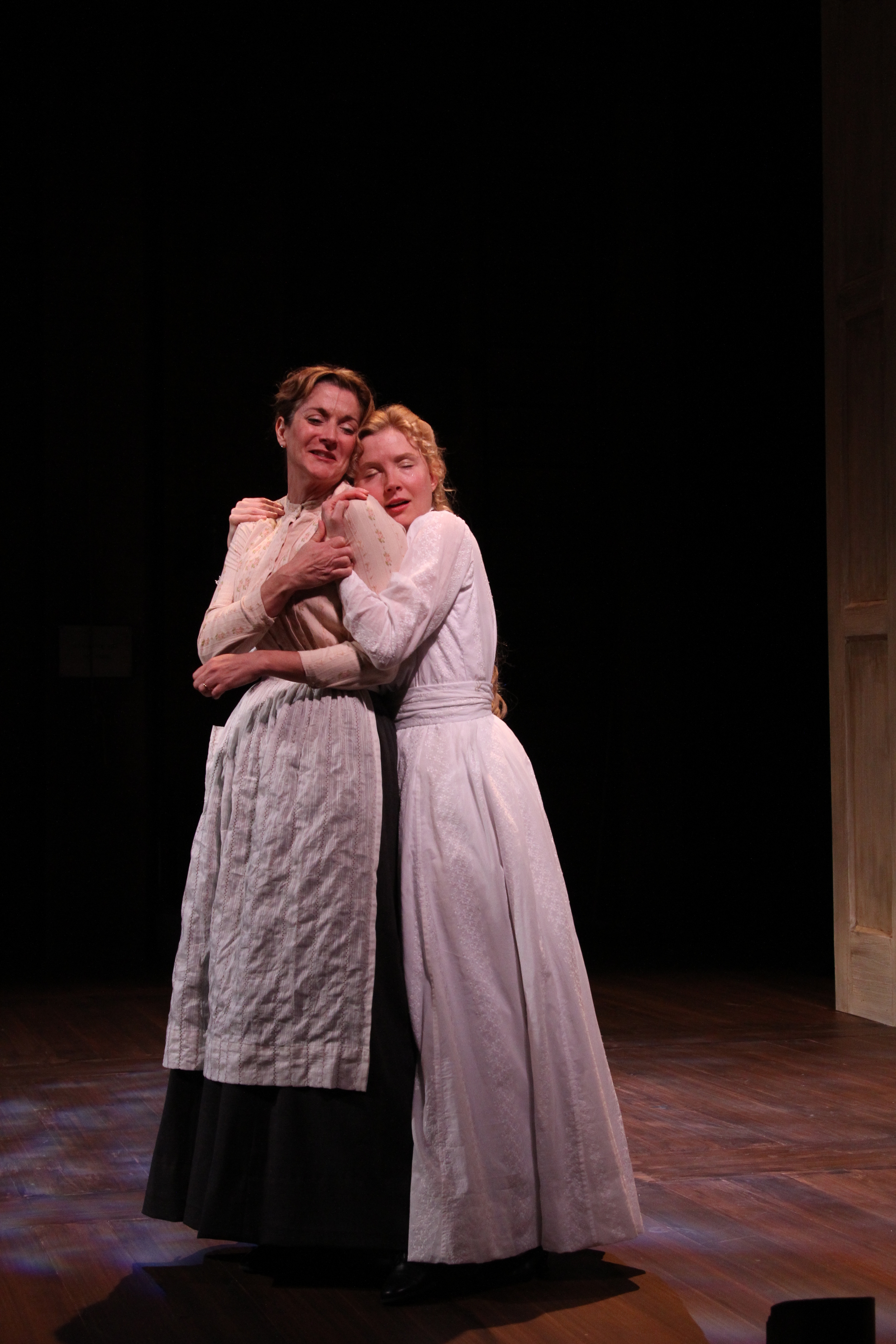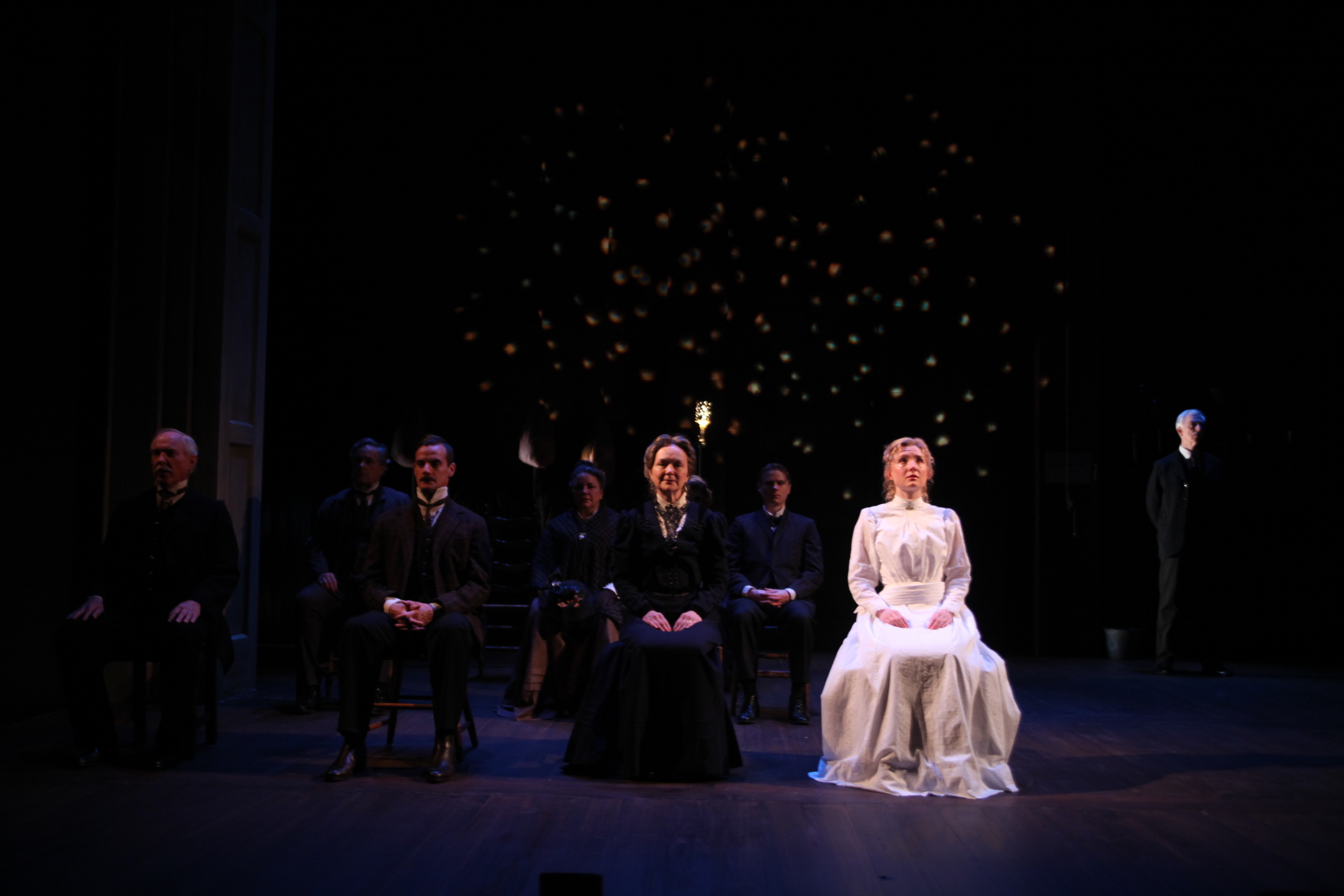“...sensitively directed with infinite attention to detail by Joseph Discher.”
“...Discher’s staging is thoughtful and portraits of the townspeople are rewardingly specific.”
“What [Discher] has done is to expertly cast his ensemble and orchestrate its performance to bring out the music in Wilder’s words.”
By Thornton Wilder
Directed by Joseph Discher
Scenic Design by Charlie Calvert
Lighting Design by Matthew Adelson
Costume Design by Candida Nichols
Sound Design by Joseph Discher
Production Stage Manager - Dee Dee Katchen*
THE CAST
Marion Adler* | Julia Gibbs
Glenn Beatty | Professor Willard
Jake Berger | Howie Newsome
Malachy Cleary* | Frank Gibbs
Jordan Coughtry* | George Gibbs
Allison Daugherty* | Myrtle Webb
Rebecca Davis | Rebecca Gibbs
Mark H. Dold* | Simon Stimson
Terence Gleeson | Constable Warren
Eileen Glenn | Mrs. Soames
Philip Goodwin* | Stage Manager
Jeff Gonzalez | Joe Crowell Jr, Si Crowell
Joseph Hamel | Joe Stoddard
Edward McEneaney | Mr. Carter
Isaac Allen Miller | Wally Webb
James Michael Reilly* | Charles Webb
Nisi Sturgis* | Emily Webb
Justin Waldo | Sam Craig
Jean Walker | Lady in the Box, Woman Among the Dead
*member Actor's Equity
Ellen Weston, Thornton Wilder, Robert Hock in Mr. Wilder's final 1959 production of Our Town.
I have had the good fortune to direct several great American classics for the stage here at The Shakespeare Theatre of New Jersey, but I can honestly say that none of them have affected me quite like Our Town. I was the Assistant to the Artistic Director when Our Town was produced here in 1996 with such wonderful company members as Dylan Baker, Edmond Genest, and Paul Mullins. It had a profound impact on me as a young artist and I’m honored to help bring this play to life here again during this, the 75th anniversary of Wilder’s Pulitzer Prize-winning work.
When I first saw Our Town it taught me one of the great lessons any director can hope to learn; how much can be accomplished in a theatre with the spoken word and little else. Seventeen years later, it is still teaching me lessons, though now they are far more profound. Wilder’s powerful themes of the transience of human life and the importance of companionship cannot be missed by anyone who witnesses his play, and the efficiency and simplicity with which Wilder captures the complexities of what it is to be alive are nothing short of breathtaking. No matter how well I think I know this play, or how many times I read it or watch it, it still leaves me reeling. Every time I think I know the play, I see it anew. As the Stage Manager so deftly reveals, we are helpless against the powers of nature and time. So perhaps the best and most important thing we can do is truly be with each other, and appreciate what we have, or rather, who we have; to notice, and appreciate life just a bit more as we live it. That is the gift that Grover’s Corners has given me and I have been a little happier for it. I wish the same for you.
“--unfortunately our time is limited…”
Thornton Wilder on Our Town:
“Very ordinary town, if you ask me…”
“Our Town evades every possible requirement of the legitimate stage. It is pure description, entirely devoid of anything even resembling conflict, expectation or action, which are usually considered the component parts of any play.”
“Do any human beings ever realize life while they live it?—every, every minute?”
“Our Town is not offered as a picture of life in a New Hampshire village: or as a speculation about the conditions of life after death (that element I merely took from Dante’s Purgatory). It is an attempt to find a value above all price for the smallest events in our daily life. I have made the claim as preposterous as possible, for I have set the village against the largest dimensions of time and place. The recurrent words in the play (few have noticed it) are ‘hundreds,’ ‘thousands,’ and ‘millions.’ Emily’s joys and griefs, her algebra lessons and her birthday and her birthday present — what are they when we consider all the billions of girls who have lived, who are living and who will live? Each individual’s assertion to an absolute reality can only be inner, very inner. And here the method of staging finds its justification — in the first two acts there are at least a few chairs and tables; but when Emily revisits the earth and the kitchen to which she descended on her twelfth birthday, the very chairs and tables are gone. Our claim, our hope, our despair are in the mind — not in things, not in ‘scenery.’...The climax of this play needs only five square feet of boarding and the passion to know what life means to us.”
“We all know that something is eternal. And it ain’t houses and it ain’t names…”
“When you emphasize place in the theatre, you drag down and limit and harness time to it. You thrust the action back into past time, whereas it is precisely the glory of the stage that it is always ‘now’ there.”
